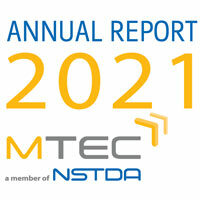Circular Economy (CE) is one of the key pillars in a new economic model for inclusive and sustainable growth, a Bio-Circular-Green (BCG) economy model. In January 2021, Thailand’s Cabinet has endorsed the BCG economy model as part of the new national agenda and called for support actions from all relevant governmental organizations to drive this new national agenda towards a speedily and sustainably concrete outcome.
From a materials technology viewpoint, the core concepts of CE consists of the following issues:
- Reducing the exploitation of new resources;
- Maintaining the value of materials or prolonging its end-of-life; and
- Recovering or reclaiming the unused materials.
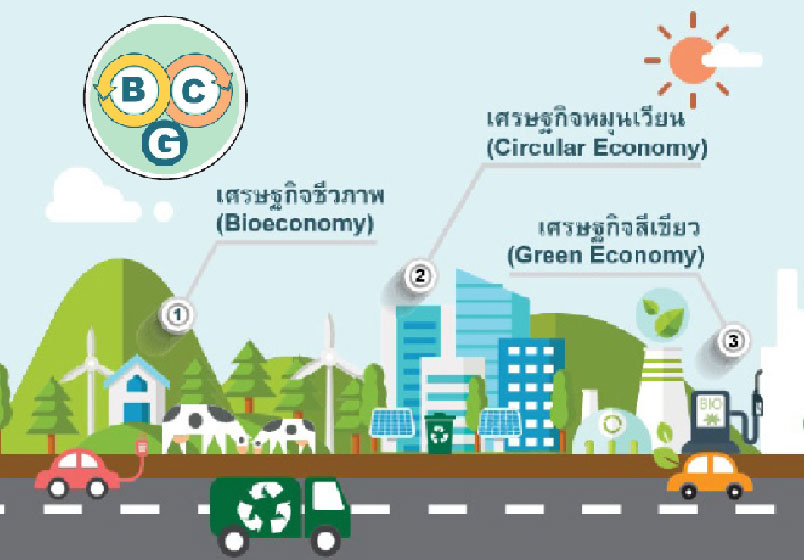
The National Metal and Materials Technology Center (MTEC) has realized the value and necessity of implementing the CE concept. MTEC has been playing an active role in providing knowledge on CE, based on its expertise in materials science and technology, so that the operators and consumers would be equipped with the correct insight in selecting appropriate, efficient, non-toxic and eco-friendly materials, which is also throughout the product life cycle.
In collaboration with both domestic and international partners, MTEC has initiated several CE activities as follows.
Intensive Design Course: “Designing Plastic Products in Circular Economy”
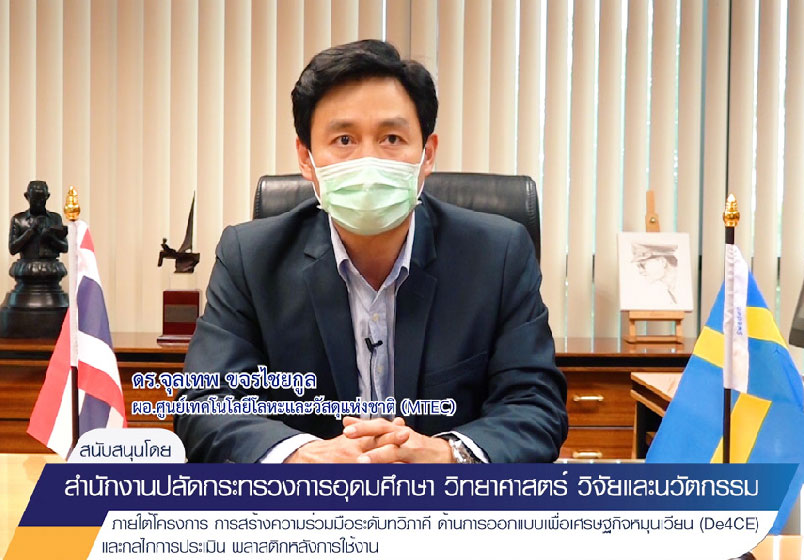
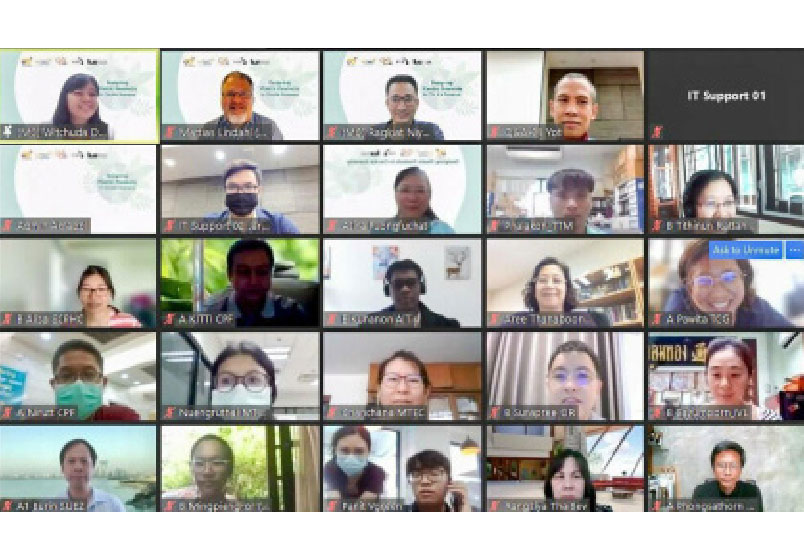
MTEC, Creative Economy Agency (CEA) and Linköping University, Sweden had jointly organized an online intensive course entitled “Designing Plastic Products in Circular Economy” on 1, 2, 9, 10, 16 and 23 June 2021. The course was granted a support from Office of the Permanent Secretary (OPS), Ministry of Higher Education, Science, Research and Innovation.
The objectives of this course are to provide the participants with the knowledge in design and development of plastic products and packaging conforming to the CE concept, boost up the capacity of environmentally-friendly product development, and encourage the partnership and networking opportunity among the participants.
The 6-day intensive course led by Professor Mattias Lindahl from Linköping University, a renowned expert in EcoDesign and product-service systems (PSSs) from Sweden.He has teamed up with the scientists and experts in the same fields from Thailand and Sweden. The course instructors have provided the fundamental concept and their experiences on eco-friendly plastic products and packaging to over 200 participants from the whole value chain of plastic industry, for instance, plastic recyclers, compounders & convertors, product designers, manufacturers of Fast Moving Consumer Goods (FMCG) products, academia.
Collaborative Action for Single-Use Plastic Prevention in Southeast Asia (CAP-SEA)
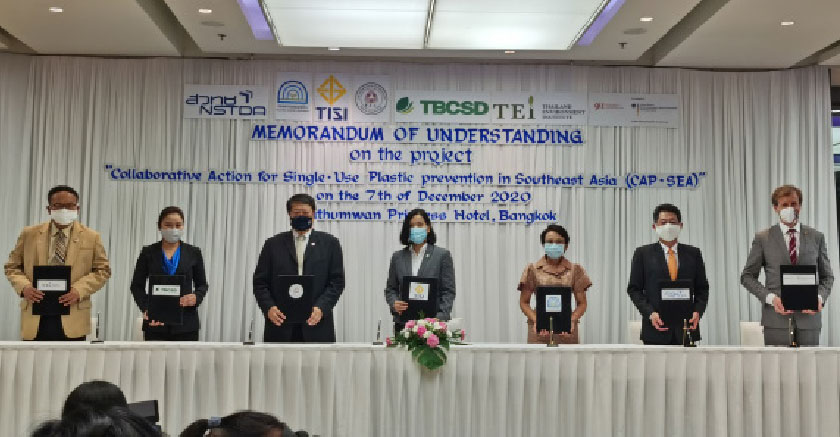
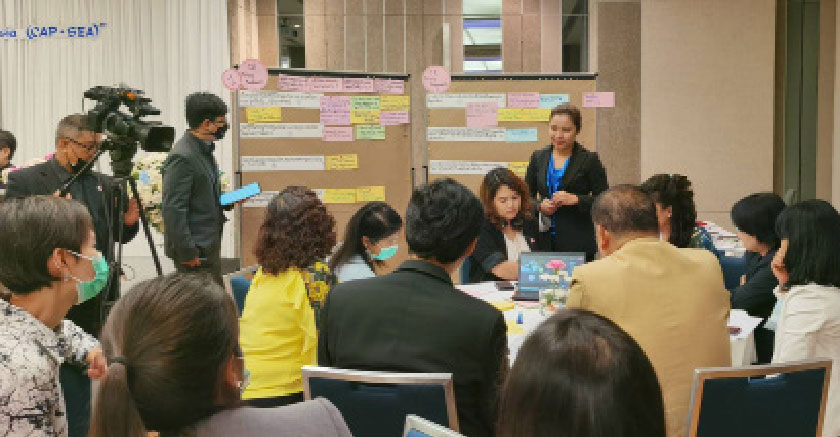
CAP-SEA is a regional project embracing Thailand, Malaysia and Indonesia as the implementing locations. The project is managed by Deutsche Gesellschaft für Internationale Zusammenarbeit GmbH (GIZ), Thailand and supported by the Federal Ministry of the Environment, Nature Conservation and Nuclear Safety (BMU), Germany. The action in Thailand has been collaborated by several organizations, including MTEC and National Science and Technology Development Agency (NSTDA).
CAP-SEA project aims to promote the reduction of single-use plastics (SUP) with a suitable business model and, at the same time, foster innovation and improve capacity building. The project duration is January 2020 – March 2023.
For the project in Thailand, the Steering Committee (SC) is chaired by NSTDA while Thailand Environment Institute (TEI) represents as the Project Secretary of the SC. The major role and responsibility of the SC is to establish the overall goal, objectives and implementation framework of the CAP-SEA project in alignment with the policy and supportive measures to drive Thailand’s BCG Economy.
MTEC has pledged its contributions in 2 key work packages as follows:
(1) CE policy and framework – to support the development of a CE policy recommendations that align with sustainable development and Plastic Waste Management Roadmap with a comprehensive analysis of impacts in all dimensions based on scientific data.
(2) CE product guidelines or design standards – to develop an appropriate practice for business proprietors and product designers on product life extension, plastic waste reduction and material circularity maximization.
Green Rock: a lightweight construction material
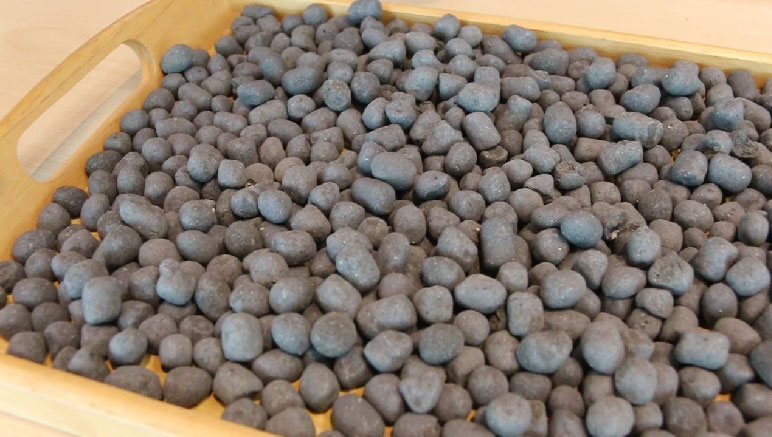
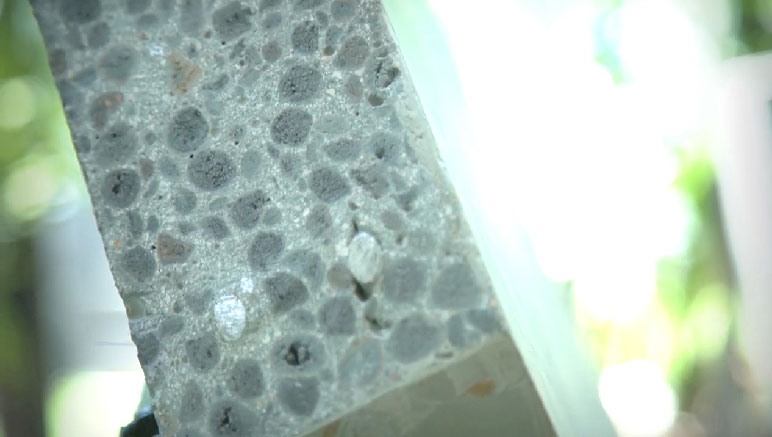
A novel synthetic lightweight material is an product derived from the knowledge of materials science and engineering. It is synthesized from industrial by-products from agricultural and industrial wastes. Besides the aspect of bringing back value of the (seems-to-be) waste, the material is also beneficial to the environment.
This lightweight material has been introduced to substitute the natural rocks used in the construction industry. The upside of using this material is a much lighter weight on the building structure while giving sufficient weight-bearing property and better performance on energy saving of the building.
This innovative product is a collaboration between MTEC and Charan Business 52 Company Limited. The partnership has resulted in a new product which has been launched by Charan Business 52 under the commercial name “Green Rock”.
